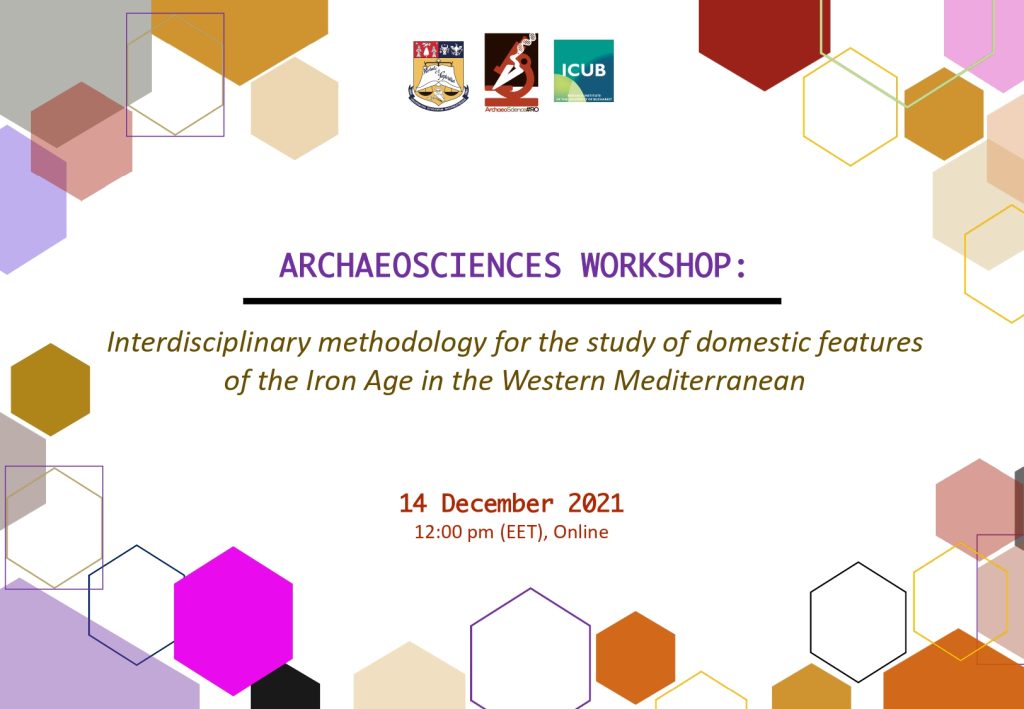The ArchaeoSciences Division within the Research Institute of the University of Bucharest organizes, on December 14th, 2021, a new event from the ArchaeoSciences Workshops series, reunited under the title ‘Interdisciplinary methodology for the study of domestic features of the Iron Age in the Western Mediterranean’.
The workshop is addressed to University of Bucarest students but it will be broadcast open to the public, and it will include the contributions of Prof. Maria Carme Belarte (ICAC-ICREA), Dr. Marta Portillo (CSIC), Dr. Marta Mateu (UB), Dr. Carme Saorin (UB), Dr. Alessandra Pecci (UB), Sílvia Vila (UdL), Valentina Pescini (ICAC) and María Pastor (ICAC), explaining updated results of the research project #TRANSCOMB.
Due to the extraordinary measures imposed by the COVID-19 pandemic, the lecture will be online on 14/12/2021, and it will take place starting 12:00 pm (EET), via Google Meet Platform, here: meet.google.com/prv-dwhr-dnb
The addressed subject is a topical one at European level. Generally, domestic architecture in the Iron Age in the Western Mediterranean has been approached from different perspectives in the last decades. Most of the studies focus on the architecture itself as well as on the domestic features (hearths, ovens, benches, etc.) that are easily identified in the archaeological record. The analysis of the associations of these items with different kinds of manufactured objects (pottery, metallic tools and utensils, etc.) is at the basis of the interpretation of the use of spaces.
However, objects can also have been moved from their original place. Bioarchaeological remains are also usually analyzed in order to complete this picture, particularly macrofaunal bones and macrobotanical remains (seeds, fruits and charcoal). In addition, microscopical analyses (calcitic microfossils, micromorphology, geochemical techniques, organic chemistry, etc.) have been added to the previously mentioned and most traditional methods. The integrated study of all these disciplines allows a more refined approach to the study of daily activities and the management of resources exploited by past societies in order to obtain food, fuels, etc. Some examples of these techniques are presented, particularly applied to the study of the combustion installations and other domestic or artisanal structures in the Iron Age Western Mediterranean.






